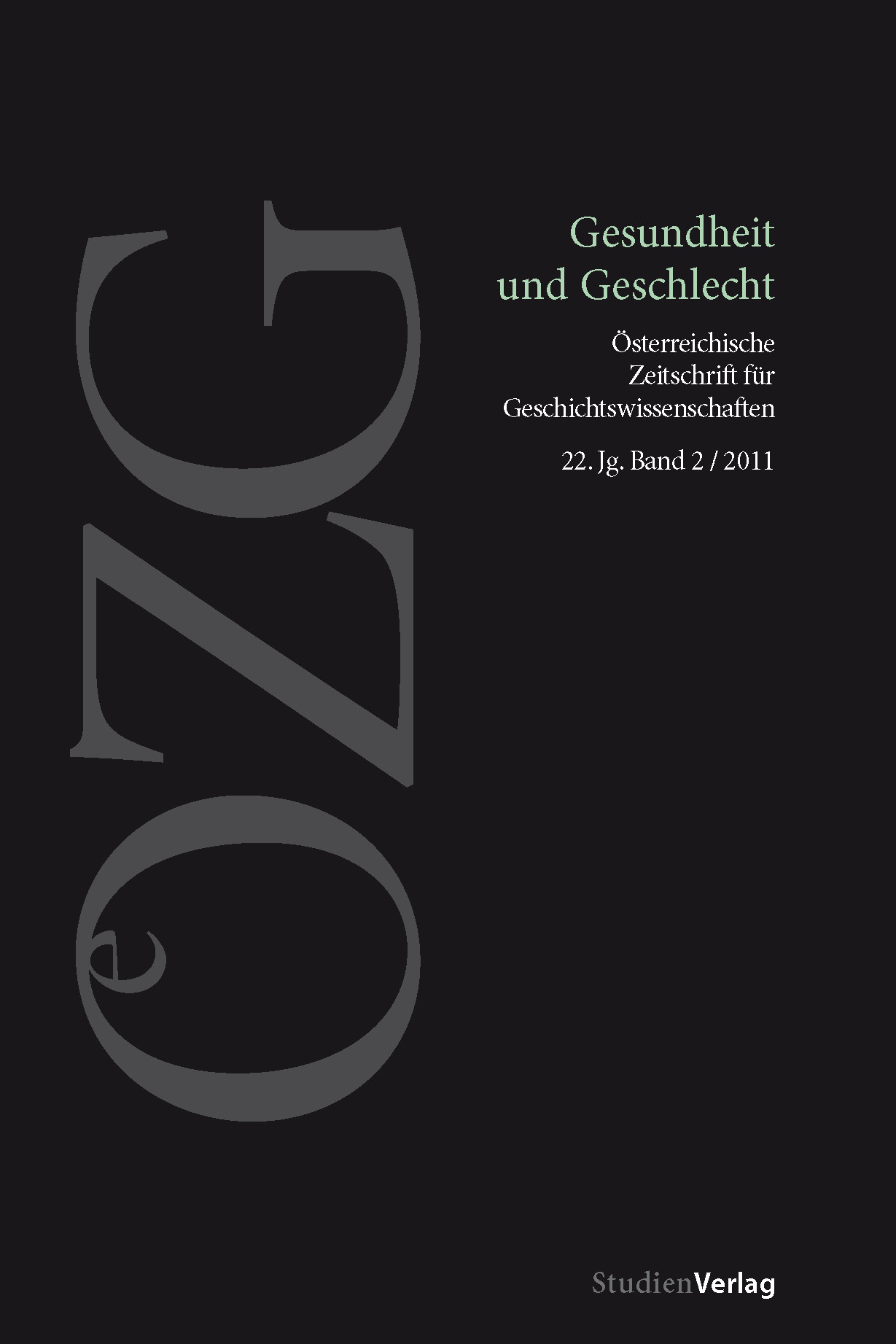From contrasting inequalities towards intersectionally differentiated healthy life styles?
The position of gender inequalities in leading paradigms in the social history of medicine and health research, 1750–2000
DOI:
https://doi.org/10.25365/oezg-2011-22-2-2Keywords:
health history, intersectionality, medicalization, health-behavior, health resourcesAbstract
At first the author reconsiders the leading paradigms of the social history of medicine and health research during the last decades and their different ways to conceptualize gender: medicalization, the medical market place, patients’ history and health history. He then turns to the concept of intersectionality and applies it to central issues of a genderspecific history of health: He considers health resources: the genderspecific capacity to speak and write about the body, health and illness; nutrition; bodily movement and sports – and behavior such as smoking. He shows, how genderspecific attributions and the role of class have changed in various degrees during the last 200 years. Gender-specific appropriations of health services are analysed next. Attending a physician or using medications changed fundamentally around 1860: men who were more active in this field before 1860, were overtaken by women afterwards.
In his conclusion the author argues that the concept of intersectionality does not consider variables such as the person’s position during the lifecycle, the sociocultural-context of the actors and supply and range of markets sufficiently. All three do heavily influence health behaviors in a long-term historical perspective. The author postulates to abandon the idea of a strong relation between class or gender with specific health statuses or behaviors. Instead he pleads for a more open and empirical research on how socio-cultural milieus and gendered health behaviors are linked through different healthy life-styles.


